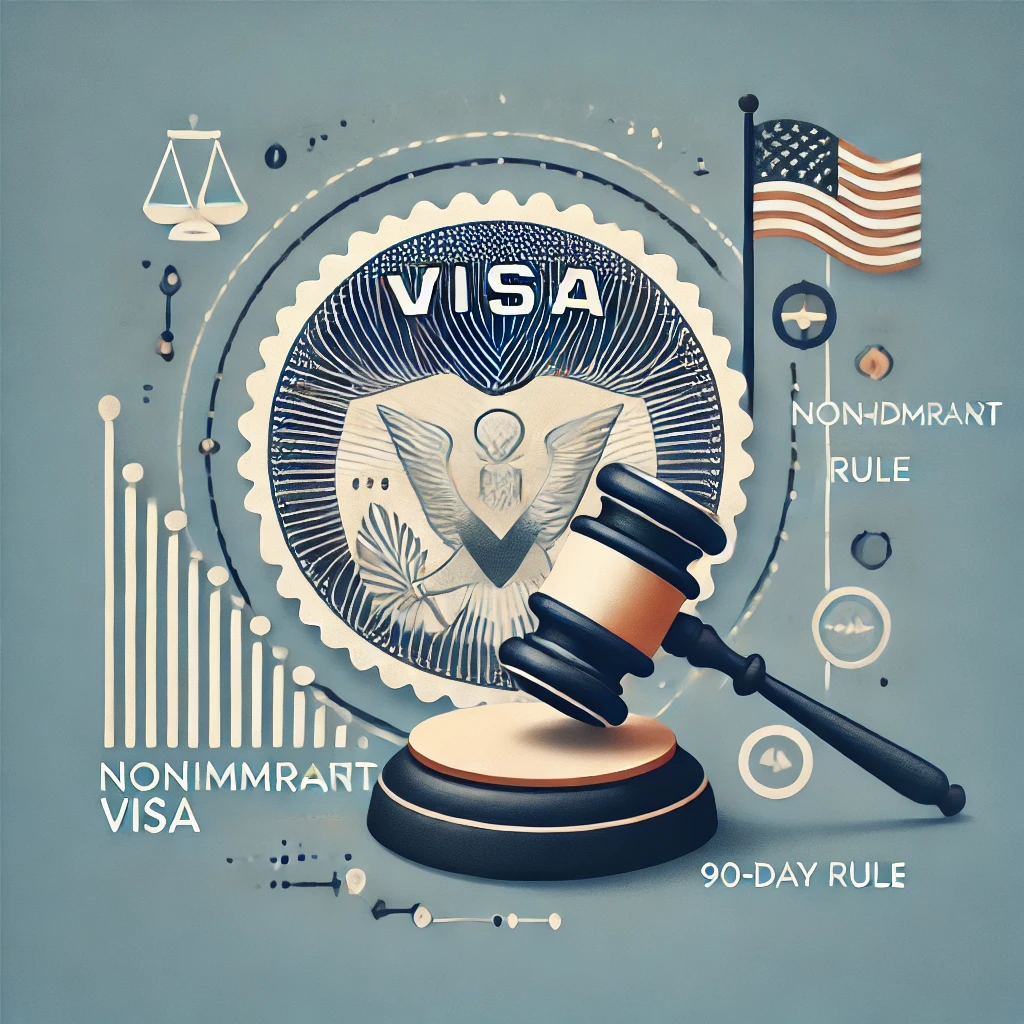
Understanding the 90-Day Rule: Misrepresentation and Nonimmigrant Status in U.S. Immigration Law
What is the 90-day rule in U.S. immigration law, and how does it apply to nonimmigrants who engage in activities inconsistent with their visa status?
Expert Answer:
The 90-day rule is a guideline used by U.S. immigration authorities to assess whether a nonimmigrant has misrepresented their intentions when applying for a visa or entering the United States. This rule applies to nonimmigrants who engage in activities that are inconsistent with the purpose of their visa within 90 days of entering the U.S.
Background of the 90-Day Rule
Under U.S. immigration law, when you apply for a visa or enter the United States, you are expected to comply with the terms of your visa. Misrepresentation occurs when a nonimmigrant provides false or misleading information about their intentions for entering the country. If you engage in conduct inconsistent with your visa’s terms within 90 days of entry, the government may presume that you willfully misrepresented your intentions. This presumption can lead to serious immigration consequences, including ineligibility for future visas or adjustments of status.
Key Conduct Triggering the 90-Day Rule
Engaging in any of the following activities within 90 days of entering the U.S. may be considered inconsistent with your nonimmigrant status and trigger the presumption of willful misrepresentation:
- Unauthorized Employment: Working in the U.S. without the proper authorization for your visa type (e.g., working on a B1/B2 tourist visa).
- Enrolling in Academic Courses: Studying in the U.S. without the proper authorization for your visa type (e.g., studying on a B1/B2 tourist visa).
- Marriage to a U.S. Citizen or Lawful Permanent Resident (LPR): Entering into a marriage and taking steps that indicate permanent residency, such as signing a lease or obtaining a mortgage.
- Engaging in Other Status-Inconsistent Activities: Any other actions requiring a change or adjustment of status without obtaining the proper authorization (e.g., applying for a green card while on a tourist visa).
How the Presumption Works
If you engage in inconsistent conduct within 90 days, immigration officers may assume that you misrepresented your intentions when applying for the visa or entering the U.S. However, this presumption is not automatic or final. You have the right to present evidence to rebut the presumption and prove that your actions were not willfully deceptive. This evidence might include:
- Documentation showing a change in circumstances after your arrival.
- Evidence that your actions were lawful under your visa category.
Inconsistent Conduct Beyond 90 Days
If inconsistent conduct occurs more than 90 days after entering the U.S., the 90-day presumption does not apply. However, immigration officers may still examine your intentions using a traditional analysis to determine if misrepresentation occurred.
Key Resources
Conclusion
By understanding the 90-day rule and complying with your visa’s terms, you can protect your immigration status and pursue your goals in the United States with confidence. Always seek legal guidance when navigating complex immigration laws.
Let’s Get Started
Your legal challenges deserve personalized attention and innovative solutions. Contact Oware Justice Advocates PC today for a consultation and take the first step toward resolution and peace of mind.
355 South Teller Street, Suite 204,
Lakewood, CO 80226
(Visits to the office are strictly by appointment only)
303-514-6589

